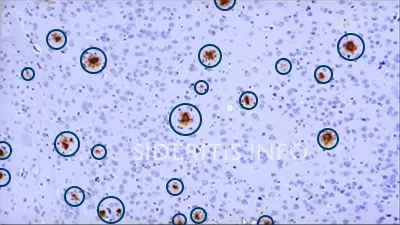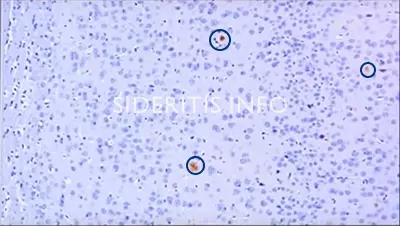6. Early Treatment and Patient Replies
All parts
- 1. What is a Dementia?
- 2. Types of Dementia, what is Alzheimer’s
- 3. Risk Factors Alzheimer’s
- 4. How can we treat Alzheimer’s
- 5. Medical Plants and Alzheimer’s
- 6. Early Treatment and Patient Replies ( You are here )
- 7. Treatment successes with plant extracts
Due to the good results with mouse models, patients were recommended to take St. John’s wort extract and Sideritis scardica in combination. The patients noticed an improvement in communication, an increase in the radius of action, (patients become more active again), an improvement in fine motor skills and a normalization of everyday life.
Patients are not cured, but clinical improvement can be observed, which can be maintained at a certain level for a certain period of time. The disease progresses, but progression and symptoms are much less.
It was observed that some patients who took St. John’s wort in the morning developed skin problems. These skin irritations are caused by sun exposure in spring and summer due to the ingredients hyperforin and hypericin in St. John’s wort.
Furthermore, questions were often asked about the interaction of St. John’s wort with other medicines. It is known that St. John’s wort activates various enzymes in the liver. This activation potentially causes drugs to break down faster. In long-term treatment, this interaction is negligible.
You start with a lower dose, so the respective enzymes are activated. After one to two weeks, the enzyme activation levels out, but this does not play a role in chronic treatment. In problematic patients, the dose is tested and then gradually increased.
Based on patient feedback, a minimum of 3 months treatment is recommended to see an effect.
Read more about taking St. John's Wort
Note Professor Pahnke (source)
“We recommend that patients on high blood pressure medication have their blood pressure checked several times during dosing. The general information that St. John’s wort is not compatible with other drugs is unfortunately a generalization and does not represent the current state of science.
All St. John’s wort preparations can lead to improved drug construction in the liver in the short term, this initial induction settles down after a few days chronic intake returns to normal levels. As dosing in patients on blood pressure treatment / blood thinning, we recommend 1 tablet in the first week, increasing by 1 tablet weekly so that by week 4 the recommended dose of 4 tablets is reached. So far, this approach has not resulted in any negative feedback.”



